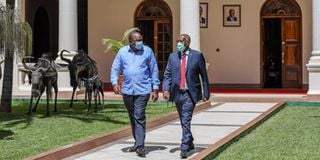SOMALILAND’S FIRST stab at independence lasted less than a week. Pipers of the Royal Highland Fusiliers were ordered to play the new state’s national anthem at a ceremony in Hargeisa, the capital, marking the end of British colonial rule in June 1960. On discovering that it did not have one, the bandmaster cobbled together a medley of local folk tunes, and conducted it with brio. A day later, however, Somaliland’s parliament passed an act of union with Somalia, a former Italian colony to its south, and Somaliland officially was no more.
It was a catastrophic mistake. Within a decade the new Somali Republic had collapsed. Its president was assassinated by his bodyguards. A Marxist junta seized power, led by Siad Barre, a general-turned-dictator. He abolished democracy and wrecked the economy by nationalising nearly everything except camel herds. He also launched a disastrous war against Ethiopia. When the northerners rebelled, he bombed Hargeisa, killing thousands of civilians. As Somalia disintegrated into clan warfare, Barre refused to negotiate, saying: “When I leave Somalia, I will leave behind buildings but no people.” He was not far off the mark. By the time he fled, in 1991, the country had plunged into chaos from which it has yet to emerge.
Somaliland unsurprisingly wanted out. Its elders agreed to break away from the rest of Somalia in 1991 at a “Grand Shir”, or gathering of clans, held in a small town in the desert. Since then, Somaliland has become a functioning state in all but name, with 4.5m people on an area bigger than Florida. It has been largely peaceful. It controls its borders and its territory, unlike Somalia’s government, which controls little more than its capital city, and that only thanks to 20,000 foreign peacekeepers. Whereas Somalia has not held a direct election since the 1960s, Somaliland periodically votes for its president and lawmakers, even if polls are marred by attacks on the press and take place less often than they should.
Yet in the eyes of the world Somaliland remains part of Somalia. For longer than most of its people have been alive, its pleas for recognition as an independent state have been ignored. The world defers on this to the African Union, the continental arbiter. It, in turn, argues that Somaliland can win independence only with the consent of Somalia, which says no.
The obvious objection to recognising Somaliland is that redrawing maps is perilous. This is especially so in Africa, where borders thoughtlessly imposed in colonial times separate countless clans and ethnic groups from their kin. Untangling this mess would be so tricky that a consensus long ago emerged: leave the map as it is.
Once you start moving borders or creating new states for this or that group, others will demand their own homelands, too, and blood will surely flow. Witness Africa’s two newest breakaway countries, Eritrea and South Sudan, which have become a gulag state and a war zone. Were Somaliland to win independence, people in other bits of Somalia might try to break away, too, as would ethnic groups in Ethiopia, the regional power.
or all these reasons, Somaliland’s case will not prevail soon. Yet it deserves a hearing. It is not seeking to redraw borders from scratch, but to revert to old ones. Some 97% of its people supported independence in a referendum in 2001. Scottish and Catalan nationalists can only dream of such unanimity. Most Somalilanders have known nothing but self-rule and would never consent to reintegrate with their bloody, anarchic suzerain.
Meanwhile, denying them recognition imposes severe human costs. Somalilanders cannot travel freely, since few countries accept Somaliland passports. They are poorer than they should be, since their government does not have the status to make trade deals or borrow directly from the World Bank or the IMF. Statehood would help fix some of these problems.
Ideally, Somaliland’s separation should be achieved with the agreement of Somalia. For the time being this seems far-fetched. But Somalia should be encouraged to grant a divorce with promises of aid and debt relief from the donors who already bankroll its government and pay for the peacekeepers who prop it up. If, like an abusive spouse, Somalia refuses to let go, Somaliland should not be held hostage. Other countries should recognise it, and international organisations should treat it like a state.
Were Somaliland to win formal independence again, its road ahead would be hard. But the odds of flourishing would be much better this time. It now has not only a breezy national anthem but also a 30-year record of reasonably successful self-rule. To recognise that is to recognise reality.

